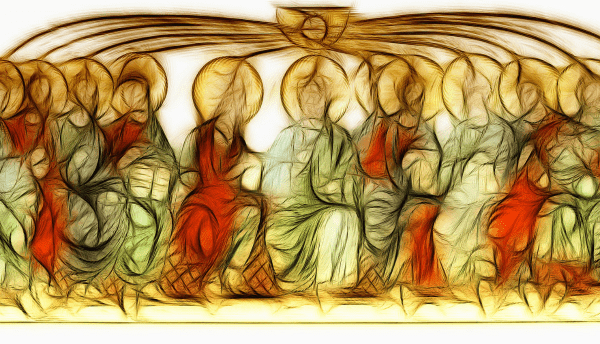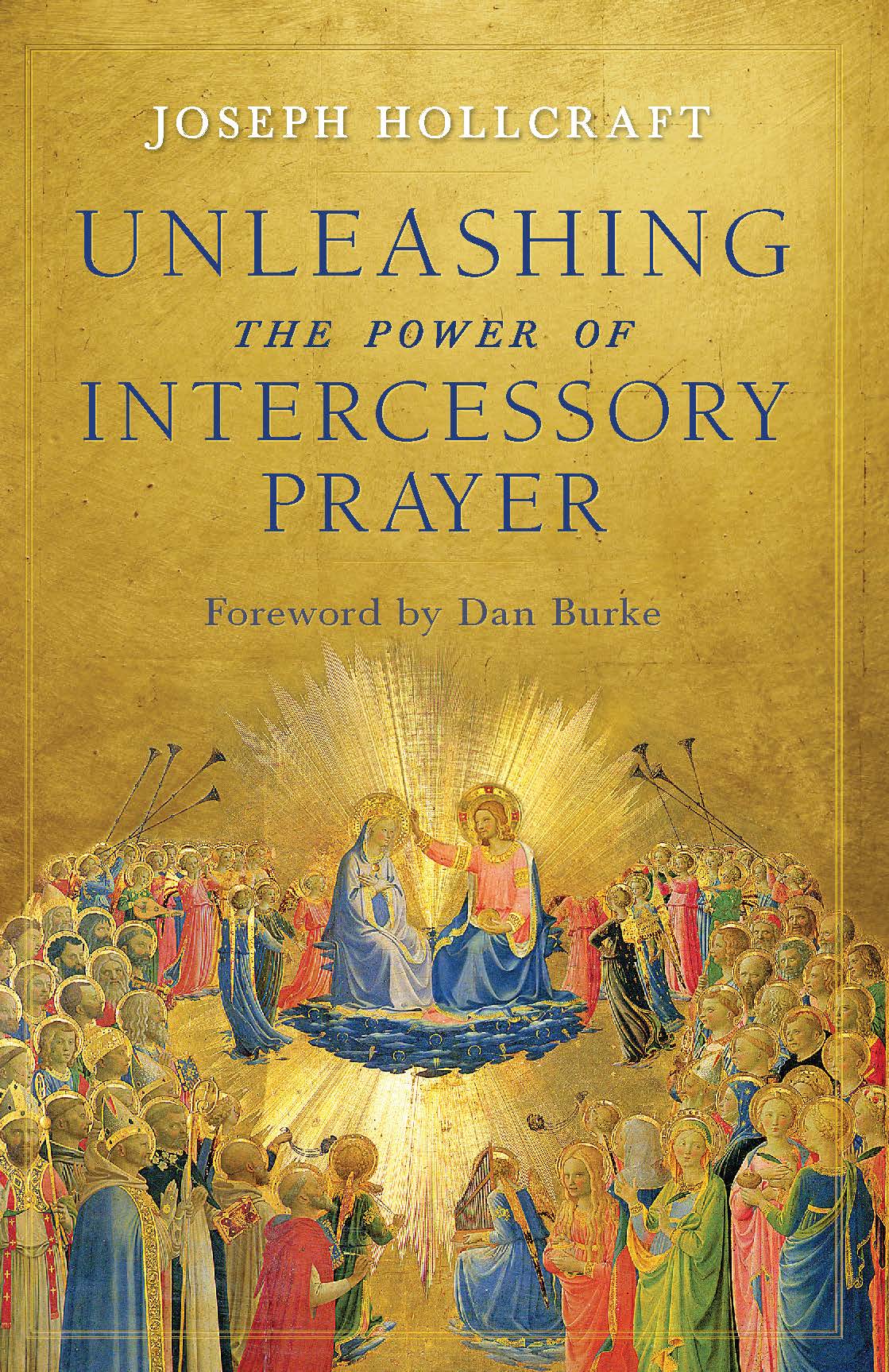My wife and I would often have passing conversations with couples at Mass, but that was it, just passing conversations. It was not until we started to invite these couples over for dinner that we really got to know them. We invited, and they responded; we opened the door (both to our home and to our hearts), and they entered. We now speak with them regularly, no longer in brief interactions after Mass, but in substantial conversations.
Are our conversations with the Holy Spirit of the passing kind or of a more substantial nature? Substantial conversations are fruitful conversations. Our goal should be to have the best possible sort of substantial conversation — one with the Holy Spirit. For the Holy Spirit is the substance shared between the Father and the Son.
Inviting the presence of the Holy Spirit into our prayer is the first tip of this book, because without it, our prayer would lack the necessary substance to be what it ought to be. What the switch is to a light, the Holy Spirit is to our prayer.
To invite is to invoke, summon, call upon, or make an appeal. In our intercessory prayer, we are invoking the presence of God into our lives and making an appeal before Him to transform the life or situation for which we are praying. Jesus said He will be with us always (see Matt. 28:20), and by virtue of the gift of the Holy Spirit, He is!
Our invocation is the fruit of an interior action — the opening of our hearts. To invite the Holy Spirit into our lives of prayer is a response to an action that God has already performed. God is always one step ahead of us; He has first knocked on the doors of our hearts (see Rev. 3:20). Therefore, our first step toward Him is always a response to His initial invitation (see CCC 2567).
Jesus said, “Ask, and it will be given you; seek, and you will find; knock, and it will be opened to you” (Matt. 7:7). Behind every good asking, seeking, and knocking is the goodness of theHoly Spirit. When talking about the Holy Spirit moving in our lives, it is not uncommon to use such words as “nudging,” “prompting,” and “motivating.” All these words have their reference point in the Holy Spirit, who inspires. We are nudged, prompted, and motivated to do what we ought to do because we first have been inspired by the protagonist of all good prayer — the Holy Spirit. In intercessory prayer, we have so much more power than we realize, not power from within, but from without — the power of the Holy Spirit given to us as gift. When we pray without the Holy Spirit, we are without the breath of God (out of breath); when we pray in the Holy Spirit, we are full of breath — full of life!
The gift of the Holy Spirit is unlimited. In Christ’s words, “For he whom God has sent utters the words of God, for it is not by measure that he gives the Spirit; the Father loves the Son and has given all things into his hand” (John 3:34–35). To paraphrase Father David Pivonka, President of Franciscan University of Steubenville, God does not portion out “a serving” of the Holy Spirit to each of us; instead, He gives all of the Holy Spirit to everyone — unmeasured. As a people, we are not satisfied until we are full. We always want more. We want everything supersized. God is that “more” because He is infinite. He is the “supersize” because there is nothing superior to Him. The word “super” is derived from the Latin supra, meaning “above,” and there is nothing above God.
As we invite the Holy Spirit into our prayer, we are inviting what is infinite in value. I have prayed for others while lacking confidence (faith) in what God would do for the one for whom I was praying. But to pray in the Spirit, who is the unmeasured gift, is to pray with confidence in the fact that God withholds nothing in our requests. Even if God’s response is not to our liking, it remains infinite in its value because God’s response always has salvation in mind.
One way to get at what this Holy Spirit–filled prayer looks like is to imitate the Spirit-filled prayer of Jesus.
+
This article is adapted from a chapter in Unleashing the Power of Intercessory Prayer by Joseph Hollcraft which is available from Sophia Institute Press.
Art for this post on Intercessory Prayer: Cover and featured image used with permission.






